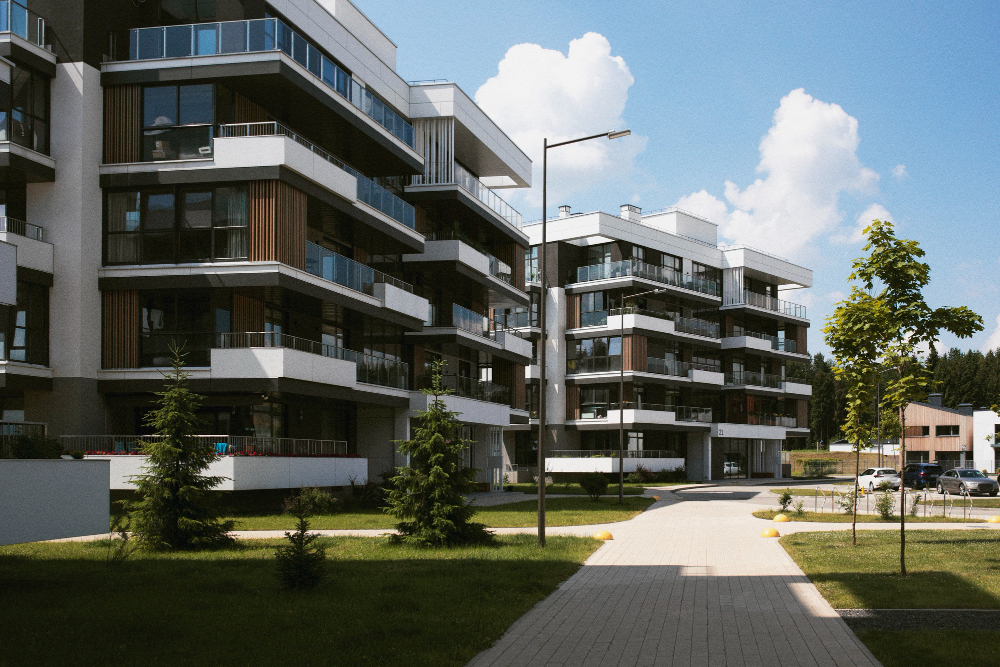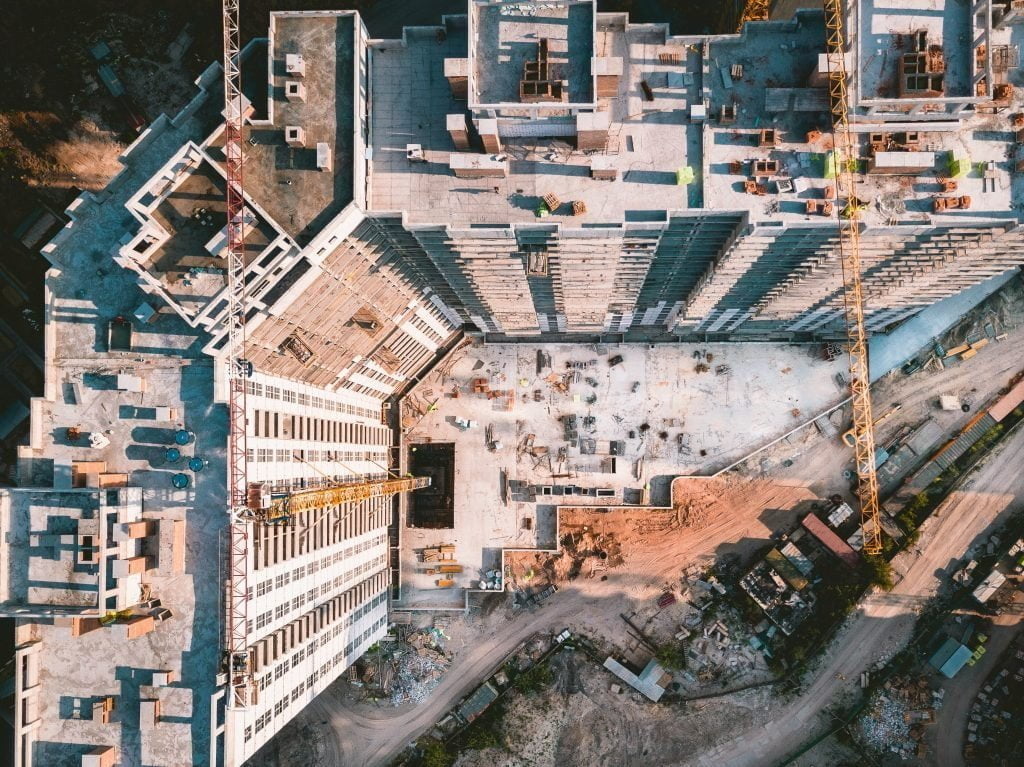Transactions involving future-developed real estate have become increasingly common in the current real estate market. However, to ensure the rights and interests of buyers as well as the responsibilities of developers, the Law on Real Estate Business 2023 provides for detailed regulations regarding payment, payment ratios, and the entitlements of the relevant parties.
These regulations particularly distinguish between domestic enterprises and foreign-invested enterprises (FDI). A thorough understanding of the legal framework enables investors, developers, and purchasers to ensure transparency in transactions.
1. Payment Regulations in Transactions of Future-developed Real Estate
1.1 Payment in Sale and Purchase Transactions of Future-developed Real Estate
Article 25 of the Law on Real Estate Business 2023 provides for the maximum payment ratios applicable to transactions involving Future-developed real estate. These payment provisions are applied upon the signing of the sale and purchase agreement for Future-developed houses and construction works. Accordingly:
- The first payment shall not exceed 30% of the value of the agreement (in which, the deposit amount must not exceed 5% of the value of the agreement as prescribed in Clause 5 Article 23 of the Law on Real Estate Business 2023, and is applicable when signing a deposit agreement, prior to the lease purchase agreement).
- The total amount payable prior to handover shall not exceed 70% of the value of the agreement. Handover shall only occur once the developer has completed the contracted construction items and ensured the project is eligible for handover under Article 27 of the Law on Real Estate Business 2023.
- For foreign-invested enterprises (FDI) subject to control under Clause 4, Article 10, the total pre-handover payment shall not exceed 50% of the value of the agreement.
1.2 Payment in Lease-Purchase Transactions of Future-developed Real Estate
Article 25 of the Law on Real Estate Business 2023 provides regulations on maximum payment ratios applicable to transactions involving Future-developed real estate. These payment provisions are applied upon the signing of the lease purchase agreement for Future-developed houses and construction works. Accordingly:
- The first payment shall not exceed 30% of the value of the agreement (in which, the deposit amount must not exceed 5% of the value of the agreement as prescribed in Clause 5 Article 23 of the Law on Real Estate Business 2023, and is applicable when signing a deposit agreement, prior to the lease purchase agreement).
- The total amount payable prior to handover shall not exceed 70% of the value of the lease purchase agreement. Handover shall only occur once the developer has completed the contracted construction items and ensured the project is eligible for handover under Article 27 of the Law on Real Estate Business 2023.
- The remaining balance shall be considered rental and paid in installments over a fixed period as agreed between the parties.
1.3 Restriction on payment prior to issuance of the Certificate of Ownership
To ensure the entitlements of purchasers and prevent risks in case of project delay or the developer fails to fulfill its obligations, Clause 3 Article 25 of the Law on Real Estate Business 2023 provides:
- If the purchaser or lease-purchaser has not yet been issued the Certificate of Land Use Rights, Ownership of assets attached to land, the developer may not collect more than 95% of the value of the agreement.
- The remaining 5% may only be collected upon issuance of the Certificate by the competent authority.
2. Regulations on Scope of Business Activities for Foreign-Invested Enterprises (FDI)
Article 10 of the Law on Real Estate Business 2023 provides clear provisions regarding the scope of business for foreign-invested enterprises. Accordingly, there are two categories of FDI enterprises:
2.1 FDI Enterprises subject to control under Article 23 of the Law on Investment
Pursuant to Article 23 of the Law on Investment 2020, foreign-invested economic organizations shall comply with investment conditions and procedures applicable to foreign investors if they fall into one of the following cases:
- Foreign investors hold over 50% of the charter capital or the majority of general partners in a partnership are foreign individuals.
- The economic organization mentioned above holds over 50% of charter capital.
- A combination of foreign investors and the above economic organizations jointly hold over 50% of the charter capital.
Enterprises in this group may only conduct real estate business in the following restricted forms:
- Investing in the construction of houses and buildings for sale, lease, or lease-purchase
- Receiving the transfer of real estate projects to continue investment and business operations.
- Leasing houses, buildings, or floor areas within buildings for sublease.
- Investing in technical infrastructure in real estate projects to transfer, lease, or sublease land use rights associated with such infrastructure.
Additionally, these enterprises may only receive pre-handover payments up to 50% of the value of the agreement under Article 25 of the Law on Real Estate Business 2023.
2.2 FDI Enterprises not subject to control under Article 23 of the Law on Investment
- If the foreign capital contribution enterprise is below 50%, they may engage in real estate business activities similar to domestic enterprises.
- Not restricted to the scope of real estate business activities.
- May receive pre-handover payments up to 70% of the contract value.
3. Conclusion
- Domestic enterprises and FDI enterprises with less than 50% foreign capital may collect up to 70% of the value of the agreement before handover.
- Controlled FDI enterprises (as defined in Section 2.1) may only collect up to 50% of the value of the agreement prior to handover.
- Payments must correspond with the construction progress, and full payment may not be collected before handover.
- If the Certificate of Ownership has not been issued, developers may not collect more than 95% of the value of the agreement.
- FDI investors should strategically consider structuring their investment capital to optimize business entitlements and payment capabilities in Vietnam.
These legal provisions serve to strictly regulate risks for purchasers and ensure that the real estate market operates with transparency and fairness.
See more:
2/ Important considerations for future condotel under the new real estate business law
Disclaimers:
This article is for general information purposes only and is not intended to provide any legal advice for any particular case. The legal provisions referenced in the content are in effect at the time of publication but may have expired at the time you read the content. We therefore advise that you always consult a professional consultant before applying any content.
For issues related to the content or intellectual property rights of the article, please email cs@apolatlegal.vn.
Apolat Legal is a law firm in Vietnam with experience and capacity to provide consulting services related to Real Estate and contact our team of lawyers in Vietnam via email info@apolatlegal.com.





































